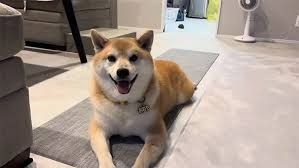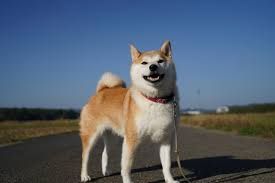Shiba Inu Nutrition: Essential Elements and Feeding Guidelines
The Importance of a Balanced Diet
To raise a healthy and long-lived Shiba Inu, daily nutrition is crucial. Understanding their dietary needs at different life stages ensures they thrive.
Key Nutrients for Your Shiba Inu
Protein
Essential for building muscles, blood, organs, skin, and coat. Shiba Inus require double the protein compared to humans. Insufficient protein can lead to stunted growth and hair loss.
Carbohydrates
These provide vital energy. However, excess carbohydrates can lead to obesity. Common sources include rice, beans, and sweet potatoes.
Fats
A source of energy, fats also keep the coat shiny. Lack of fats can result in skin problems. Balance is key; too much can cause weight gain.
Minerals
Dogs need about ten times more minerals than humans. Essential minerals like calcium and zinc support muscle and nerve function.
Vitamins
These aid the functions of other nutrients and are vital for eye, dental, and bone health. Deficiencies can cause anemia and mobility issues.
Feeding Guidelines by Age
- Puppies (0-6 months): Start with mother’s milk, transitioning to puppy food. Feed 4-5 times a day.
- Young Dogs (6 months – 1 year): Switch to puppy food, feeding 3 times a day.
- Adults (1-8 years): Transition to adult food, feeding twice daily.
- Seniors (8 years and older): Switch to senior dog food, maintaining two meals a day.
Feeding Techniques

- Avoid Fixed Meal Times: Dogs can learn to demand food if fed at the same times. Varying meal times helps prevent barking.
- Create a Feeding Space: Use a designated bowl in a calm area, ideally within a crate or pen.
- Set a 15-Minute Rule: Allow 15 minutes for eating; if the food isn’t consumed, remove it to discourage pickiness.
- Ignore While Eating: Avoid eye contact during meals to prevent anxiety in your dog.
Choosing Dog Food
- Primary Food: Select a dry dog food labeled as “complete and balanced.” This ensures the right nutrient mix.
- Treats: Limit treats to prevent imbalances; use them for training rewards or occasional snacks.
Storing Food Properly
Buy amounts that can be consumed within a month. Transfer opened food to an airtight container and refrigerate to prevent spoilage.
Exercise and Weight Management
Monitor your Shiba Inu’s weight regularly. Obesity can lead to serious health issues. Increase exercise through longer walks or playtime as needed.
Treats and Snacks
While treats can be enjoyable, keep portions small. Avoid human food, as it may contain harmful ingredients.
Conclusion
By following these guidelines, you can ensure your Shiba Inu receives the proper nutrition needed for a healthy and happy life!



Comments